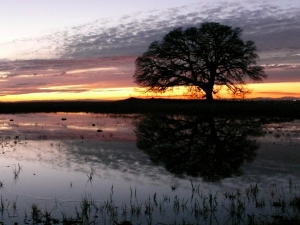
It was one of those out-of-the-blue questions. You know, the kind that comes up in a conversation and then pings around in your brain for the next few days.
Steve Liberti, the drummer for ML3 and a Proclaim! International artist/missionary, calls me on the cell phone. “Hey, I’ve got a quick question,” he begins, “and I don’t want you to think too hard on it.”
That’s usually a clue that the question is complex and profound and I’d better think a whole lot before I answer.
“Why did God give us the Psalms?” he asked.
The Book of Psalms is my favorite book of the Bible. Unlike most other books of the Bible, the Psalms are songs, written to be played and sung, lyrical and poetic in their form and expression. It is Truth that comes as much from the heart as from the head. And the Psalms speak of the depth and breadth of the human condition, from exuberant celebration to heartbroken despair. There is anger, longing, repentance, submission, joy. The authors know of the sweetness of intimacy with God as well as the dark night of the soul, when one feels the hopelessness that comes from being far removed from Him. Written by artists, the Psalms naturally speak to the artist in me.
All of these thoughts started rushing through my mind in the few seconds between Steve’s question and my answer. Truthfully, I’m not sure precisely what I said, but I said something like this:
“The Psalms are an artistic expression of the human condition, and provides a picture of what is possible in intimacy with God.”
While I think that answer is fairly adequate, the deeper truth in that answer is better portrayed by the Psalms themselves.
In the depths of desperation, Psalm 63 says, “O God, you are my God, earnestly I seek you; my soul thirsts for you, my body longs for you.” Psalm 77 says, “When I was in distress, I sought the Lord; at night I stretched out untiring hands and my soul refused to be comforted.” And Psalm 13 says, “How long O Lord? Will you forget me forever?”
In the depths of intimacy, Psalm 139 says, “Where can I go from your Spirit? Where can I flee from your presence? If I go to the heavens, you are there; if I make my bed in the depths, you are there.” Psalm 131 says, “I have stilled and quieted my soul; like a weaned child with its mother, like a weaned child is my soul within me.”
In the act of joy and celebration, Psalm 92 says, “It is good to praise the Lord and make music to your name, O most High, to proclaim your love in the morning and your faithfulness at night.” Psalm 146 says, “Praise the Lord, O my soul. I will praise the Lord all my life; I will sing praise to my God as long as I live.” And Psalm 47 says, “Clap your hands all you nations; shout to God with cries of joy!”
In the experience of God’s Shalom, His peace, Psalm 116 says, “Be at rest once more, O my soul, for the Lord has been good to you.” Psalm 16 says, “You will fill me with joy in your presence, with eternal pleasures at your right hand.” And in Psalm 23, he reminds us, “The Lord is my shepherd, I shall not be in want. He makes me lie down in green astures, he leads me beside quiet waters, he restores my soul.”
God meets us in celebration and in desperation, in silence and in exuberance, and in any context where we dare pour our hearts out to Him. As an artist who tries to express my relationship with God through my art, the language of the Psalms is like my native tongue.
The Bible describes David, the poet warrior king who penned many if not most of the Psalms, as a man who followed after God’s heart. So I find the Psalmist speaking words that my soul feels, and singing the songs that my heart sings. In a very real sense, it is the true and heartfelt expression of the artist to The Artist.
[Note: Photo courtesy of Keith Elliott.]
Republished with permission from Blogs.crossmap.com, featuring inspiring Bible verses about The Artist and the Book of Psalms.